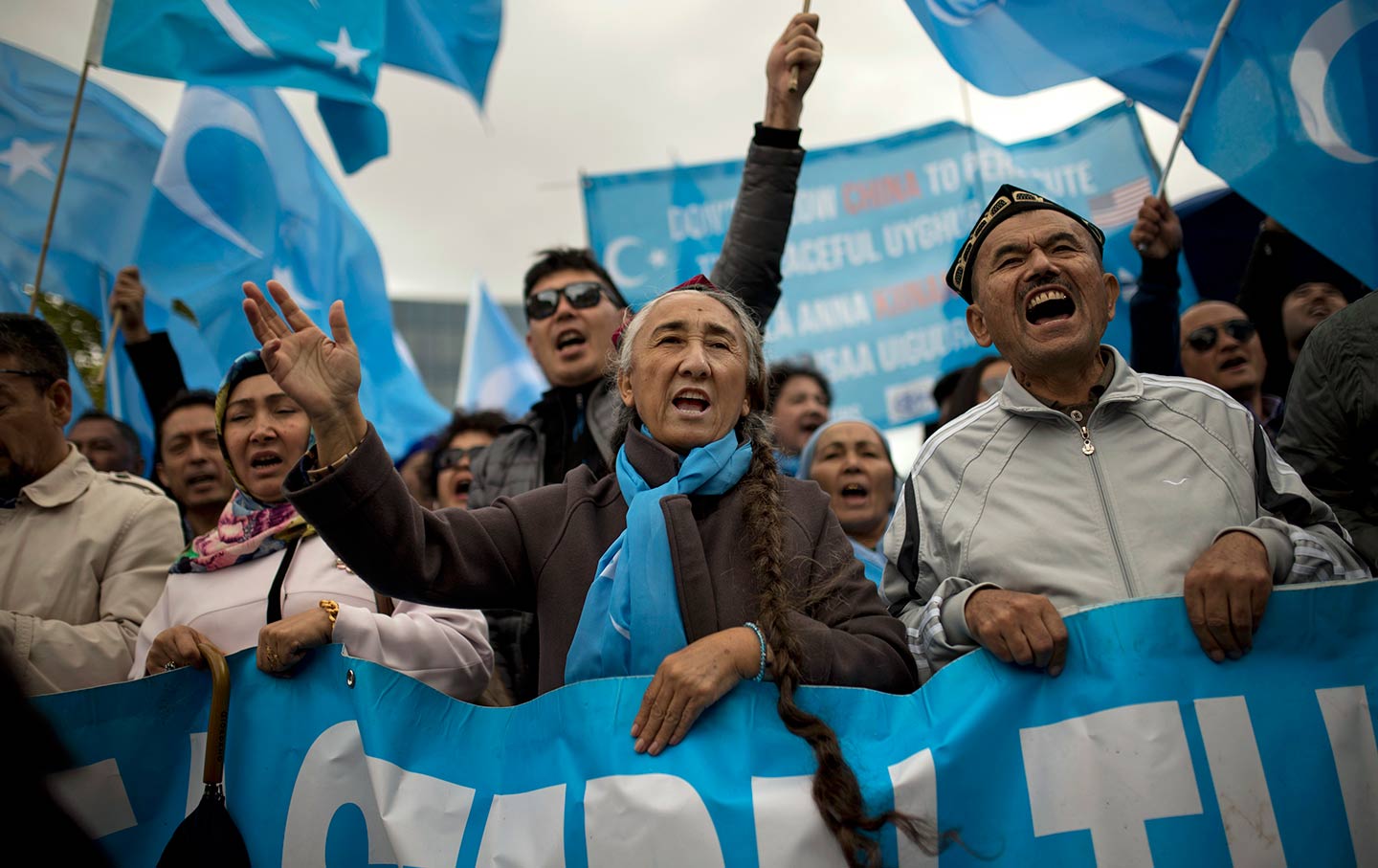Organ harvests, forced sterilization of women, psychological torture, and forced family separations—the hallmarks of the Xinjiang region in China. Uyghur Muslims live in fear in Xinjiang as the Chinese government continues to wage war on their culture, with its elimination as the goal. Many are subjected to “re-education” camps, a euphemism for an exploitative labor system. It seems almost inappropriate to call this situation a humanitarian crisis where such little humanity exists. Xi Jinping’s “sinicization” program is a dehumanizing system. And we’re a part of it.
While all Muslims in Xinjiang need support, re-education camps are a starting point for change. The claims of “re-education camps” are a mere facade for the system of control implemented by China to structure and utilize the Xinjiang region that we, as consumers, have given economic value to. We have more power than we realize to overcome this situation, and it’s time to harness that power to stop a crisis that even the U.N. won’t touch. China is also a case study of a practice the globalized world has continuously perpetuated: the ability for companies to utilize political situations to their benefit through the exploitation of workers.
Financial Value of Xinjiang: The Need for Political Control
What does the fashion world desperately need to meet soaring demands? Cotton. And who can provide it? China. In fact, China is the world’s leading supplier of cotton, and to be specific, 84% of that cotton comes from the Xinjiang region, making it an economically valuable region to control. So, with protests for independence and push-back by Uyghur Muslims, political control in the region is seen as a necessity by the Chinese government in order to streamline economic benefits. In other words, they need to have a compliant workforce to reap these benefits. And these camps are just that. Utilizing Mao’s 1950s methods, China recycled the idea of “re-education” camps to act as a mere facade for what is truly a dehumanized, exploitative labor system. The identities and livelihoods of Uyghur Muslims have been traded for money. In these “re-education” camps, Uyghur Muslims are simply free laborers in cotton production that China can exploit for profit.
This cotton production extends to all of our favorite household brands: The Australian Strategic Policy Institute published a report in February of 2020 implicating 83 brands, such as Apple, Victoria’s Secret, and Fila, three of whom have yet to make statements in response. What does that mean? You probably own at least one item made by a Uyghur Muslim under distressed conditions. In fact, an estimated one in five cotton garments worldwide is a byproduct of forced Uyghur labor.
Human rights organizations worldwide have banded together to call for action. Mike Pompeo, U.S. Secretary of State, and other top U.S. officials recently called on companies to take responsibility and cut business ties with Chinese cotton production. Congressional Representatives in the U.S. have also moved to ban imports made with Uyghur Muslim labor. Although motivated by independent interests, the recognition by these important figures serves as a milestone for addressing the crisis. Yet, it’s getting worse. China’s retail sector has only grown with the growing demand of online retailers during the COVID-19 pandemic, feeding into their economic success as other economies suffer, thus creating more economic incentives for its exploitative system.
Eliminating Economic Incentives For China
Business is how China got to the top and it’s the best way we can bring Uyghur Muslim camps down. Especially during COVID-19, China’s economy is recovering mainly thanks to the retail industry. We are empowering China’s economy and giving them a reason to continue operating “re-education” camps in the shadows. But if we’re driving this slavery, we can also stop it. If we can shift our shopping habits and prioritize humanitarian concerns, we can force big businesses to rethink their labor usage of Uyghur Muslims. Businesses ultimately aim to meet demand and you create that demand—that’s how much power the money in your wallet has. If we stop buying clothes that were made with Uyghur labor, we can force companies to reshape their labor standards.
Thinking about who made your clothes doesn’t stop at helping Uyghur Muslims; the entire fast fashion world needs to be put in the stoplight for its impact on global communities. Avoiding companies that exploit labor in the Xinjiang area is just the first step you can take in being a more socially conscious consumer. We can truly help empower local communities around the world by making our purchases count for them, not against them, by supporting specific economic models. If you’re up for the challenge of sustainable fashion, look into the GOTS cotton system or consider the fair trade model. Such items, made with fair trade cotton for example, have a certification to guarantee just wages and safe working conditions. Better yet, buy your items second hand at local thrift stores or on apps like Mercari, Poshmark, or Depop. If you’re interested in doing more on the issue, fill out this petition to showcase your support against the slave labor of Uyghur Muslims and check out this website for more detailed information and updates.
Your Money, Your Vote
This crisis is on us. We aren’t the United Nations, entangled in a web of politics. We are consumers with agency in a globalized market economy—let’s put that power to good use by refusing to perpetuate the enslavement camps of Uyghur Muslims and instead supporting business models that empower global communities. Every dollar you spend is a vote for the type of world you support.
Image Credit: “Uighyurs in Brussels” by AP Photo / Francisco Seco is licensed under CC BY-NC-SA 2.0.



